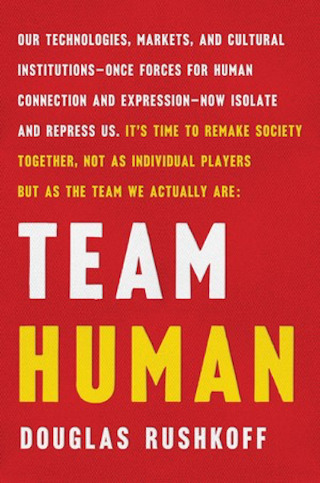Image credit: Paul Burns / Getty Issues
Artificial intelligence is not life.
Because they will not evolve. Although artificial intelligence may iterate and optimize, but that is not evolution. Evolution is random mutation in a specific environment. In contrast, machine learning is aimed at a specific, pre-programmed purpose. It may be complicated, but not as complicated as evolution, weather, ocean, or nature. Complex systems, such as traffic lights that can be seen everywhere in cities, can direct the actions of people and cars. In contrast, complex systems, such as transportation circles, can spontaneously form flows through the interaction of many participants. The machine has many complicated parts and processes, but there is no higher order; the complexity of life is born out of them.
No matter how many names people give to new functions of computers that sound like neurological terms, computers are not aware. Some people are keen to imagine what computers will look like in the future. They like to use terms such as "fuzzy logic", believing that these programming techniques can make computers operate closer to human thinking. Fuzzy logic means that computer programs can handle values other than 1 or 0 and can represent them as 1 or 0. This is the whole meaning of fuzzy logic. It can be seen that in the face of real uncertainty, fuzzy logic is not fuzzy at all. It just reduces the roughness and complexity of the real world to binary that can be processed by the computer.
Likewise, neural networks are not like the human brain. A neural network has layers of nodes, and its way of learning new knowledge is to analyze hundreds of cases input from the outside world. Instead of describing what a cat looks like to the computer, we feed it hundreds of pictures of "cats" until it can determine the common and distinguishable features of "cats" in these pictures. However, humans can generalize the category of "cats" only by seeing a photo of a cat. How does the human brain do it? We are not so sure.
We cannot say exactly what it means to be a thoughtful, conscious human being, but this should not be considered a shortcoming of the human brain. Human thinking is not computer-based, and reality itself is only information. The human brain has intelligence, which is a unique ability of the brain; there are a lot of data in reality, but if there is no human consciousness to reflect them, then the human brain and these data are meaningless. We cannot downgrade human consciousness to primitive processing power. For example, the human body can certainly lift weights, but we can never lift heavy objects as lightly as a crane. Similarly, our calculation speed cannot be compared with supercomputers. But the value of human beings is far more diverse than mere "usefulness". Using technological intervention or directly replacing the human brain with technology to strengthen an index that is conducive to employment will only forget other potentially more important values, the most important of which is consciousness itself.
Science has shown that consciousness is a completely incalculable quantum state in the tiniest structure of the brain-microtubules. In the human brain, there are billions of these microtubules, and each microtubule has many active points. If all the computer chips in the world are integrated into a computer, this computer will also be in the human brain. Defeated in front of the complex.
Only computer developers will act as if consciousness is simple enough to be replicated by machines. Real neuroscientists are still confused about the impossibility of self-awareness in a bunch of neurons. This conclusion contradicts reality.
This does not mean that we will quickly deny the existence of consciousness. Consciousness is not an illusion of human brain caused by DNA in order for people to have survival instincts. We do not live in a virtual world. Our consciousness is real. With the development of physics up to now, even physicists have admitted that the reason for the existence of consciousness is more sufficient than the existence of objective reality: quantum theory believes that it may not exist before we observe objective reality. In other words, the universe is a bunch of possibilities, until someone's consciousness approaches it and sees it in a certain way, then it can condense into what we call reality.
Searching for the origin of consciousness is a bit like searching for the smallest cosmic particles. It is more like a doctrine from the perspective of mechanistic science, rather than a true reflection of how the brain works. Whenever we find a final determinant, such as a gene, we will later discover that it is determined by something else. Once we discover a certain pathogenic bacteria, we will grasp its characteristics, discover the most suitable environment for its growth, and even discover the mechanism that causes it to cause disease. The only way to solve the problem of the origin of consciousness is through first-hand experience. In addition, when researching, we should maintain respect for the world in which we live and the other people who share the whole world with us.
In this sense, we know the existence of consciousness because we know how it feels. There is a cup of coffee on the kitchen table, we can see it, animals or computers can also see it, but humans are different, humans also know what it feels like to see a cup of coffee on the table. Choosing to look at that cup and noticing it is the uniqueness of human consciousness. Computers can’t do this. They can only see everything within the camera’s range. They don’t “pay attention”, they don’t have the focus of their sight. Know the real direction.
To understand what it feels like to look at a cup of coffee, you need to construct your mind and self. Currently, only humans can do this, because humans are humans and computers are just objects.
Douglas Rushkoff's new book "Human Team". Image source: Internet
This article is section 58 of Douglas Rushkoff's new book "Human Team".


No comments:
Post a Comment